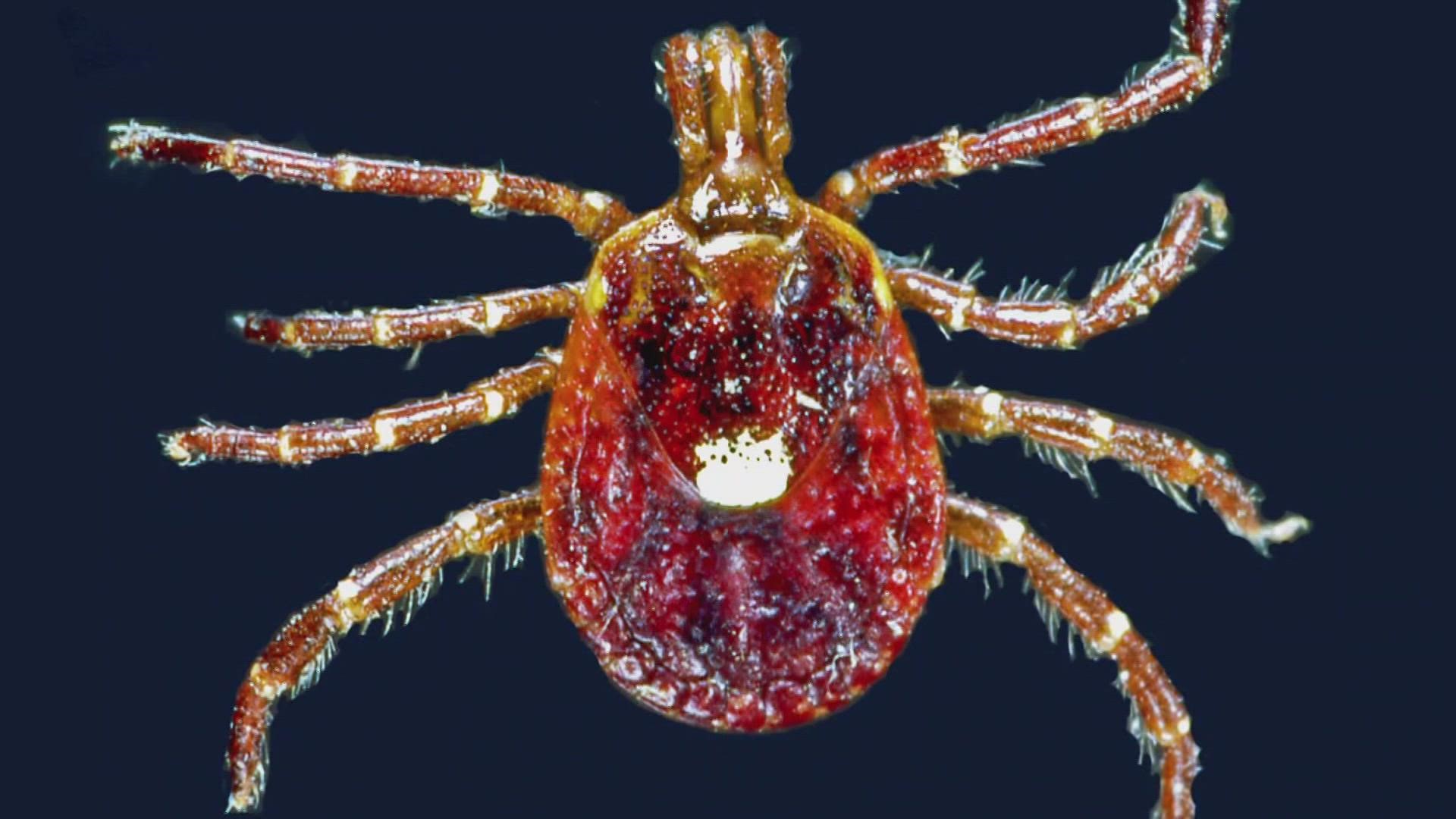SHAPLEIGH, Maine — There's another reason to be mindful of ticks when you head outdoors — a bite from the Lone star tick could cause a lifetime allergic reaction to red meat. Called Alpha-gal syndrome — it causes food allergies to red meat such as beef, pork, and other mammal products.
While experts at the University of Maine Tick lab say the number of Lone Star ticks found in Maine is still very small, a Shapleigh woman is working to raise awareness of how some of the symptoms can be life-threatening.
For Beth Carrison, everything started after she found a tick embedded in her back, then days later rashes started.
"My skin was itching and burning, but we couldn't figure out what was happening," Carrison explained.
Carrison was never a big red meat eater, but did occasionally have pork. That rash came back with vengeance after having bacon. Being exposed to cooked pork in public was also excruciating.
"By the time I'd leave the grocery store, I'd be in hives just because it's airborne," Carrison added with a frustrated look on her face.
Nine years ago, Beth was diagnosed with Alpha-gal Syndrome, which is triggered by a bite from a Lone star tick, which doesn't carry Lyme disease.
Some people will develop an allergy to Alpha-gal, which is a carbohydrate found in mammals, making them allergic to meat including beef, pork and lamb, and other products. The reactions include hives, swelling of the lips, face, or throat, shortness of breath, gastrointestinal distress, sneezing, headaches, and anaphylaxis.
But unlike peanuts or shellfish, the reactions are wide-ranging and not immediate.
It's difficult to pinpoint because they had the reaction to something they ate eight hours ago," Dr. Tina Merritt, an allergist-immunologist, at the Allergy & Asthma Clinic of Northwest Arkansas, said.
Dr. Merritt trained with Dr. Thomas Platts-Mills, professor of medicine and microbiology and head of the division of allergy and immunology at the University of Virginia, who discovered Alpha-gal.
A survivor of Alpha-gal herself, Dr. Merritt works with patients from throughout the country, advising them to avoid exposure but to always be prepared.
"Have an antihistamine on hand. Have epinephrine on hand—like a peanut allergy—try to avoid it. But if you get exposed, have an action plan," Dr. Merritt added.
Beth meanwhile helped co-found Tick-Borne Conditions United. The non-profit provides education, training, support, and advocacy for Alpha-gal Syndrome and other tick-borne diseases.
She also worked with other advocates to raise awareness on the federal level about AGS, which was recently identified by the CDC.
While her AGS is in remission, Beth, who also has Lyme disease, always takes precautions against ticks anytime she is outdoors. Another tick bite could reignite her symptoms again.
For more information about symptoms and diagnosis of Alpha-gal syndrome go here.

